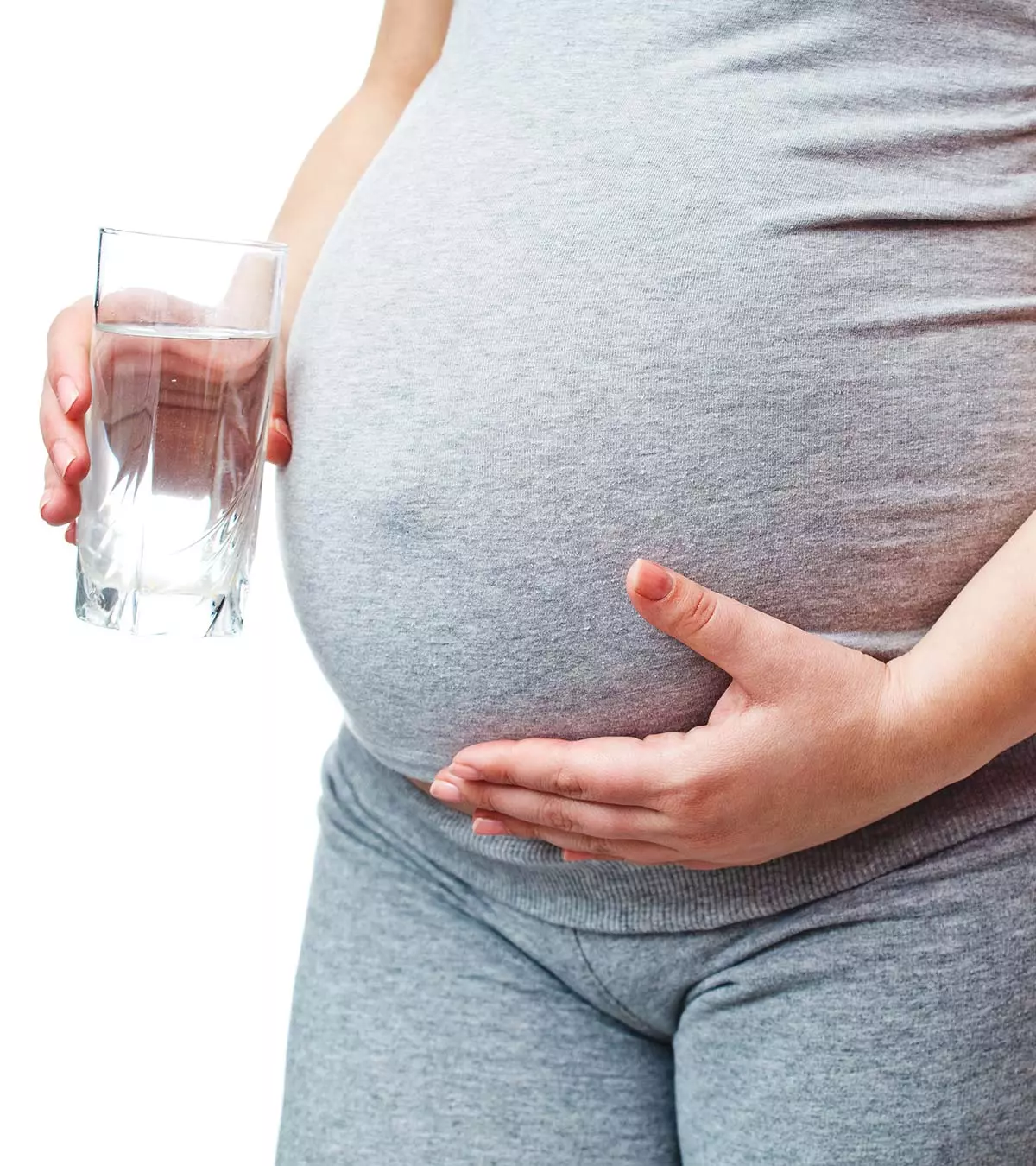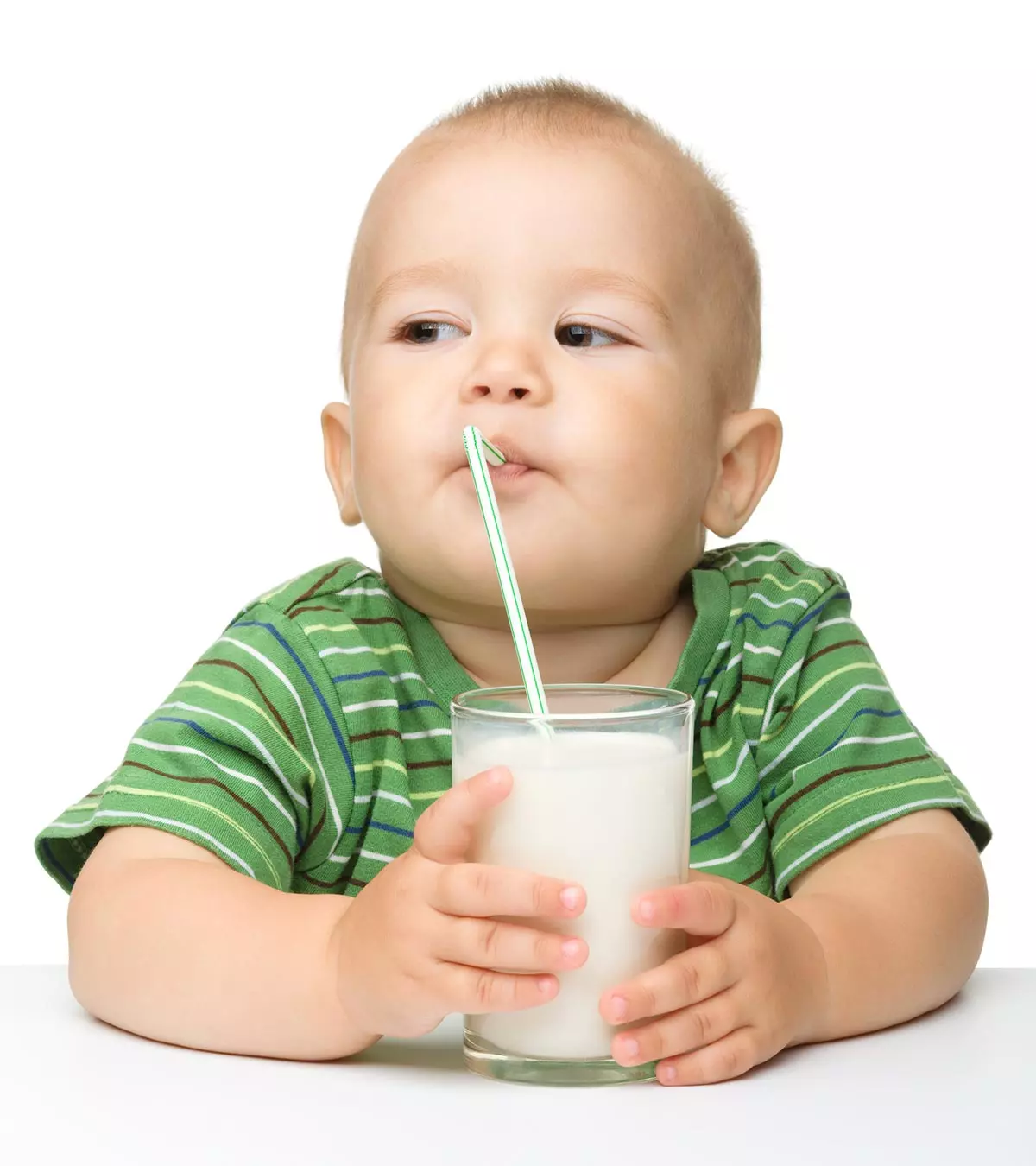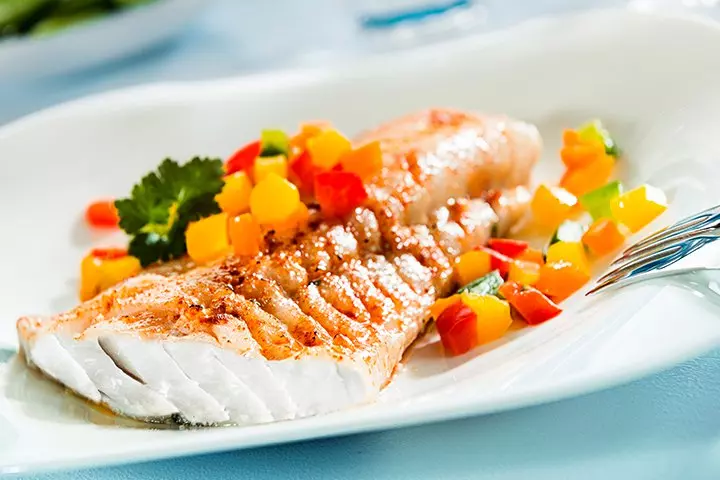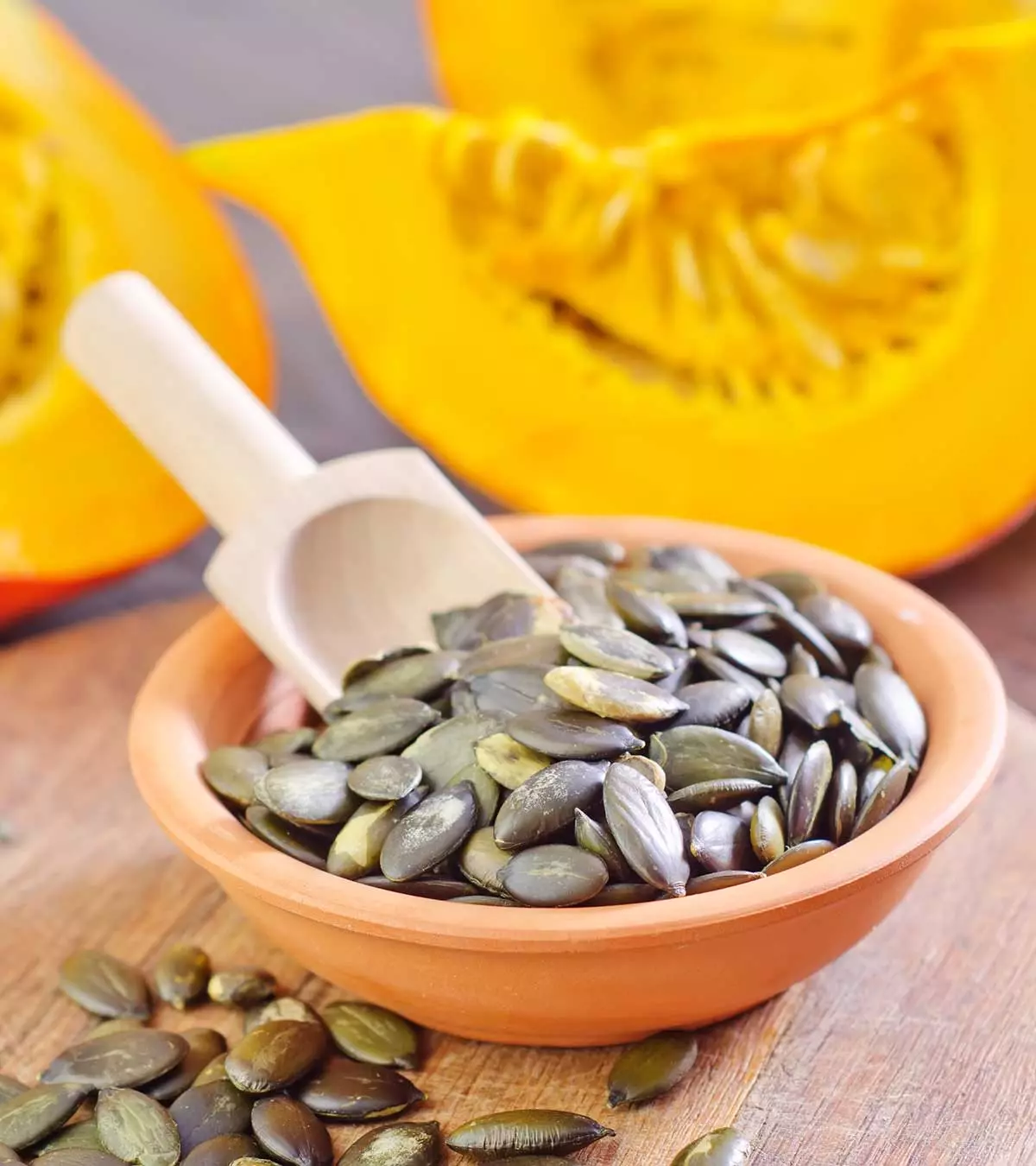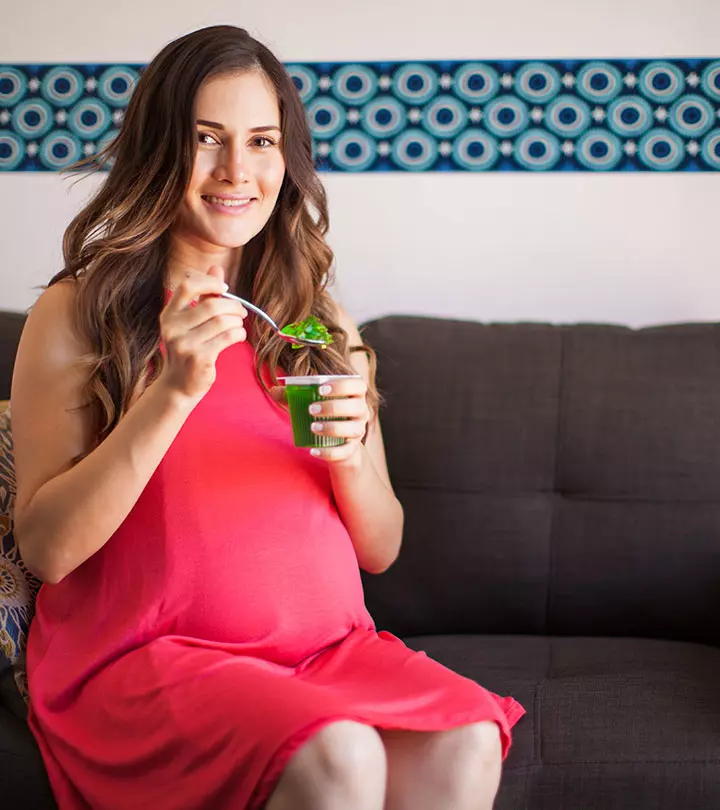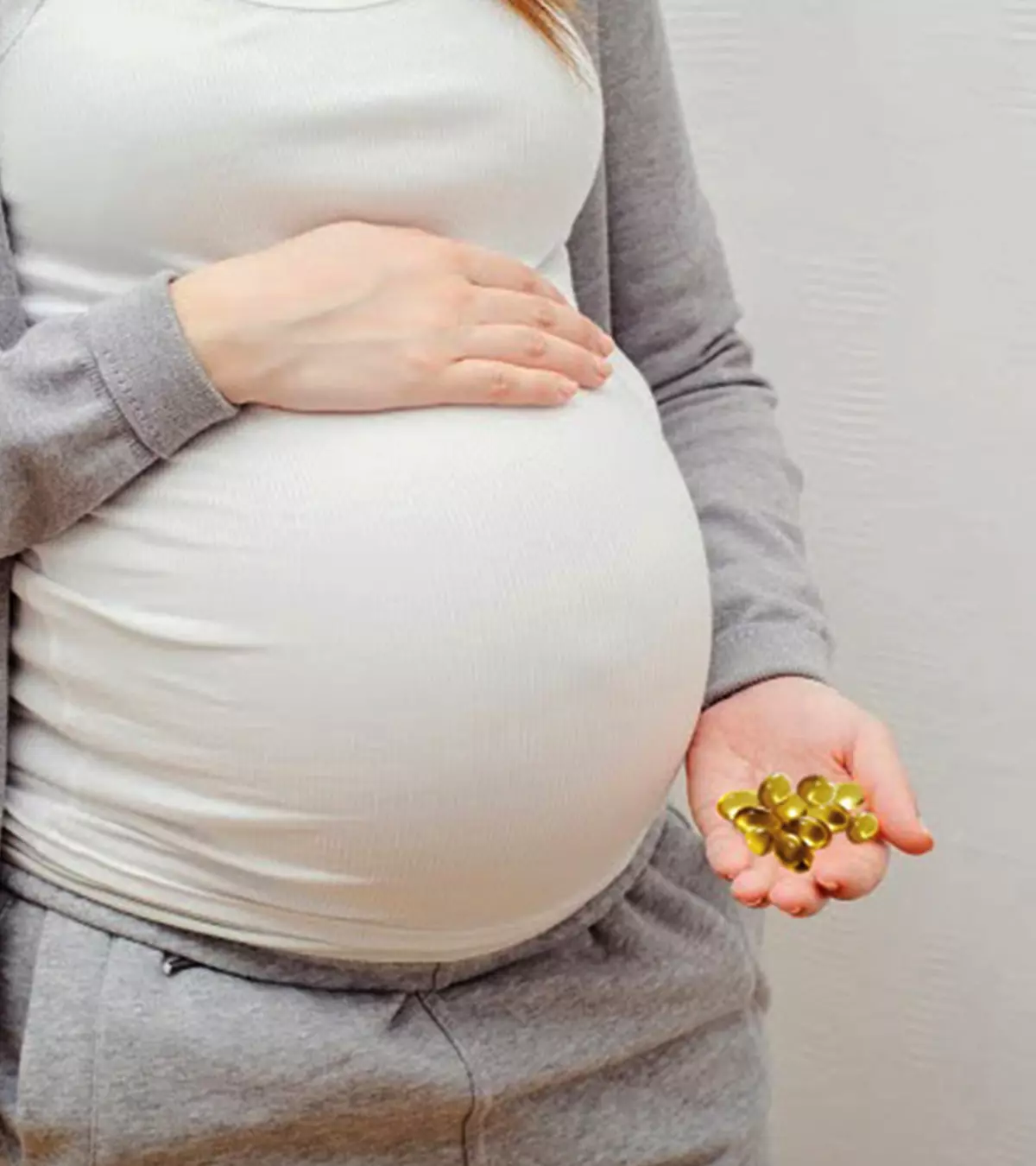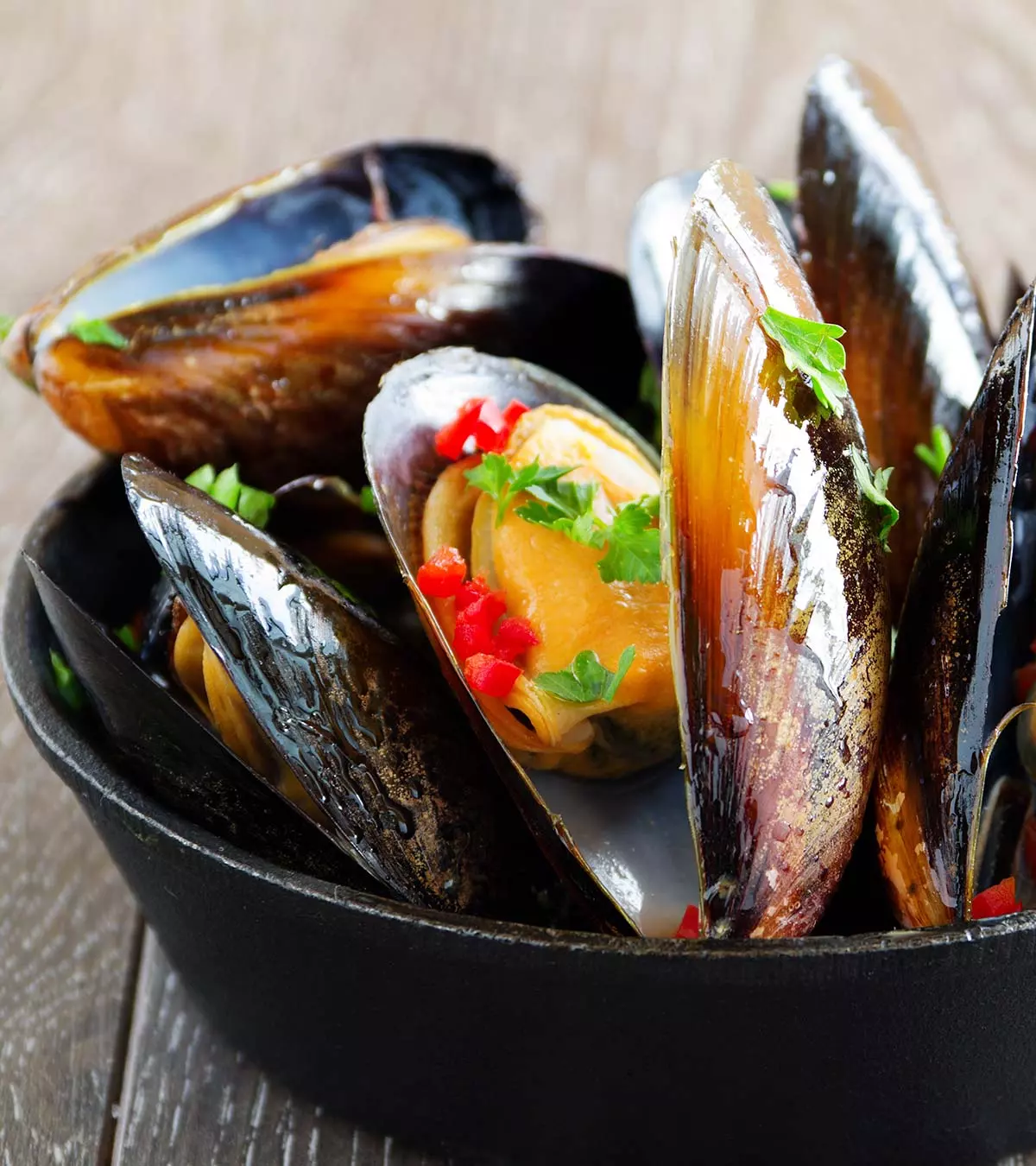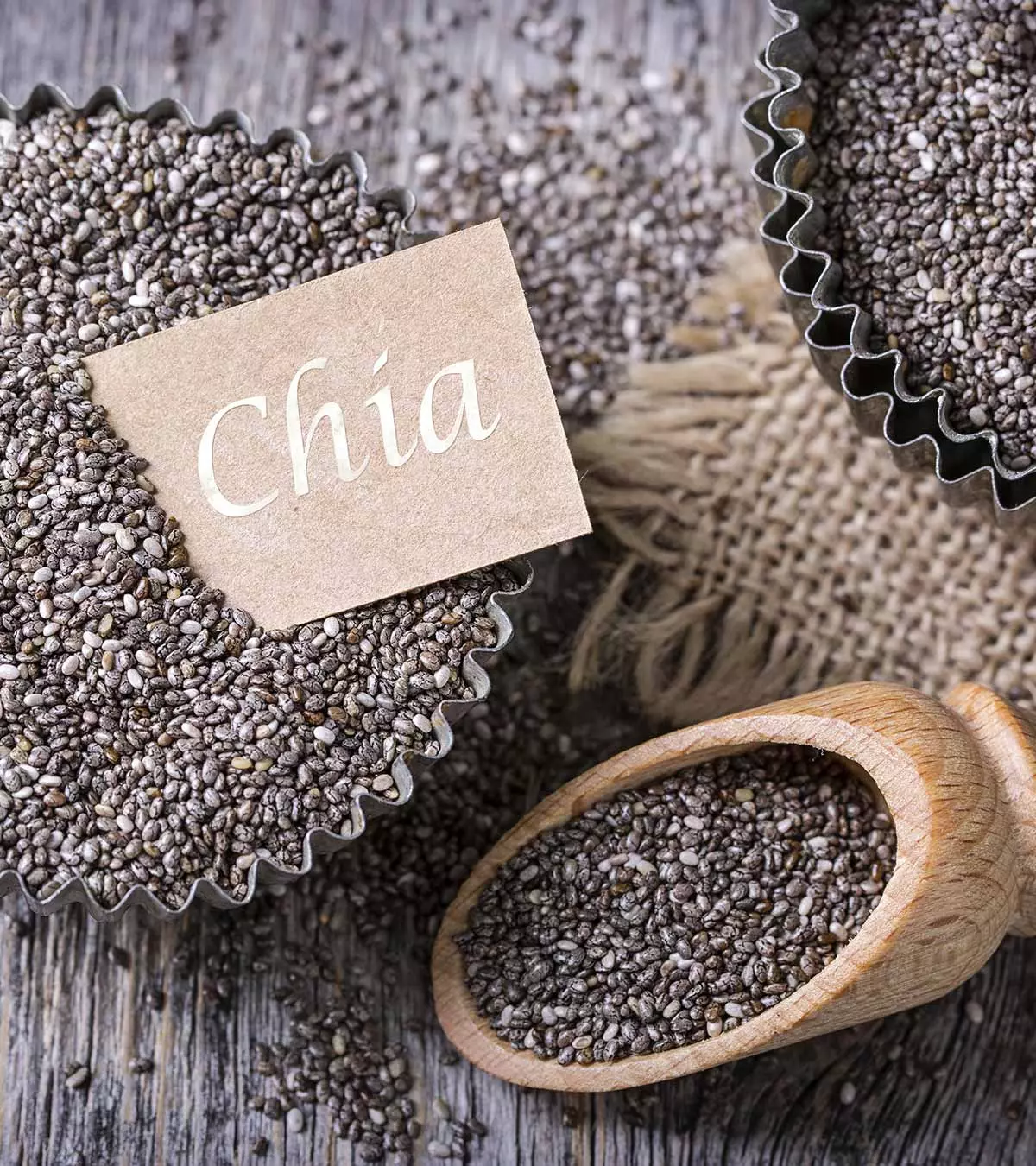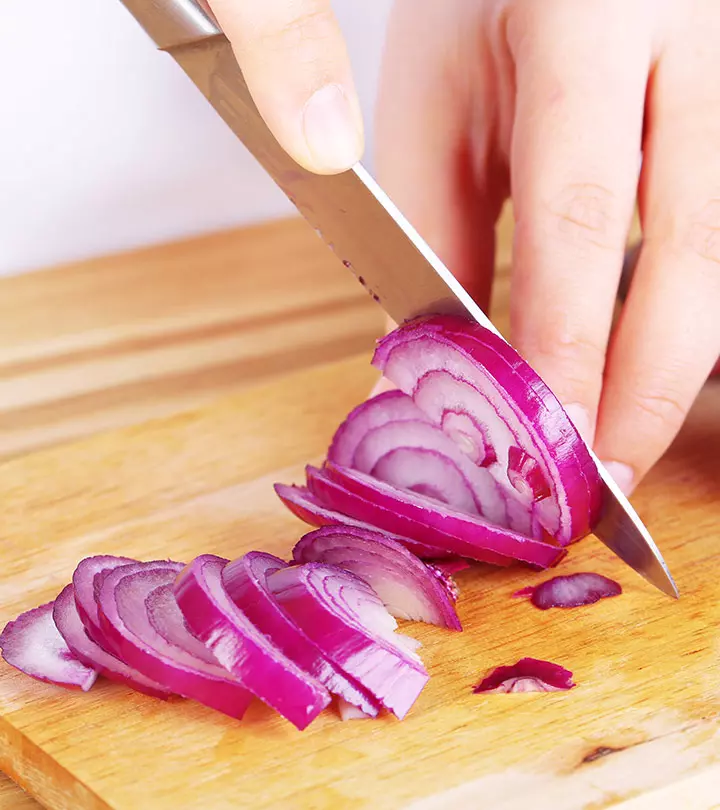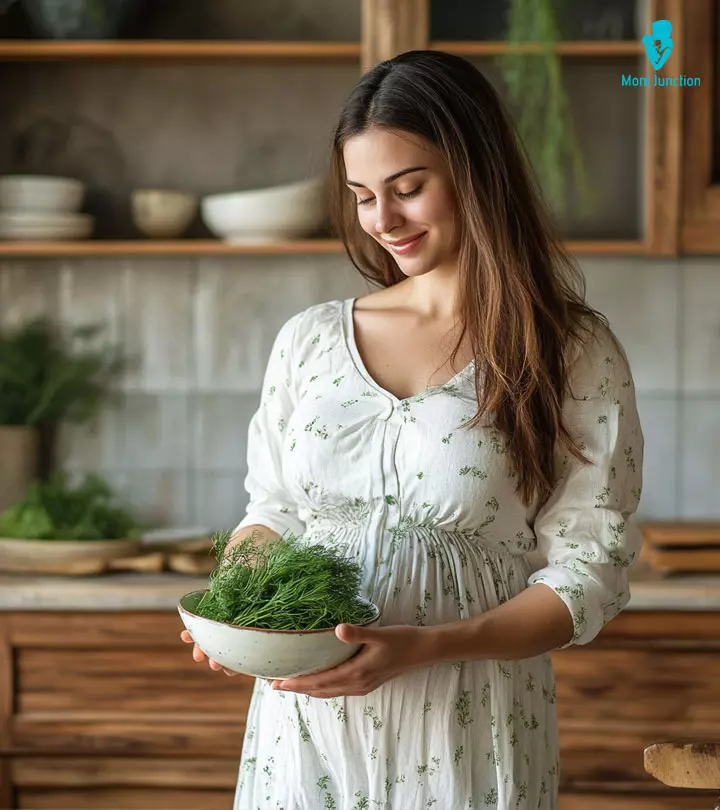
Image: Midjourney/ MomJunction Design Team
Dill is a herb that is commonly used for cooking and medicinal purposes. Although the herb is flavorful and contains different nutrients beneficial for health, you may be concerned about the consumption of dill during pregnancy.
Dill can be consumed in small quantities during pregnancy. However, if taken in excess, it may have adverse effects on the growth of the fetus.
Read this post to know how much dill you can consume during pregnancy and learn about its benefits and side effects.
Key Pointers
- Consuming dill in small quantities is safe during pregnancy.
- Dill has several health benefits, including improving blood-iron levels, controlling cholesterol, and exhibiting antibacterial activity.
- Dill is a rich source of calcium and promotes the growth of healthy bones.
- Overconsumption of dill can cause skin irritation and increase the risk of miscarriage.
What Is Dill?
Dill is a perennial herb belonging to the family of Apiaceae. It is typically used for medicinal purposes or used as a seasoning, flavoring, or pickling agent to enhance the taste of foods. Dill possesses tangy, appetizing taste and flavor and flavonoids, amino acidsiA group of organic compounds that join together to form proteins. , minerals, and chemical compounds popular as MonoterpenesiMain constituents of essential oils; a class of organic compounds (terpenes) with ten carbon backbone. that are beneficial for an expectant mother’s health (1).
Is It Safe To Use Dill During Pregnancy?
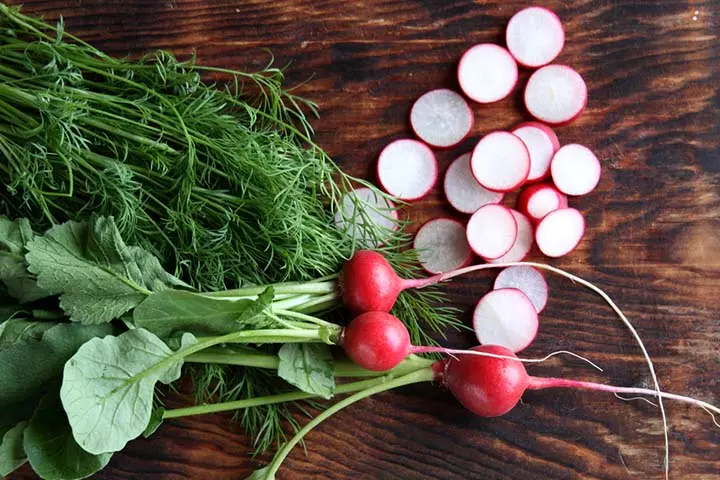
Image: Shutterstock
Yes, you can use dill during pregnancy only for your culinary purposes in small quantities. You can have a dash of dill pickle during pregnancy. However, avoid using concentrated dill oil in your food during pregnancy as it may harm your health or fetus. Also, avoid using an excess of dill in pregnancy as it can promote menstruation and put your pregnancy at risk. Dill seeds and leaves have been used traditionally as a natural medicine for their therapeutic properties; however, one should avoid therapeutic doses of dill while expecting.
Culinary Uses Of Dill
Dill is a flavorful addition to various dishes and can enhance nutritional value. It can be used in salads, soups, and marinades, providing a unique taste while offering health benefits. Incorporating dill into your meals can be a delightful way to enjoy this herb safely during pregnancy.
8 Health Benefits Of Eating Dill During Pregnancy
Using dill for culinary purposes during pregnancy can help you have many health benefits.
1. Protects from bacterial infection
The use of dill while pregnant safeguards you from harmful bacterial infection. The anti-bacterial effects of the herb prevent the growth and expansion of bacteria and related ailments resulting due to it.
2. Prevents free-radical activity
Dill possesses powerful antioxidant properties that help safeguard your body from the harmful effects of free-radicals. The herb neutralizes free radicals, thus preventing oxidative stress during pregnancy.
3. Promotes bone health
Dill is rich in calcium, which is a vital mineral that safeguards you from the loss of bone mineral density. The herb safeguards you from the risk of osteoporosisiA condition where the bones become weak and easily breakable. during pregnancy, and ensures appropriate bone growth and development in the fetus, reparation of injured bones, and promotes your bone health.
4. Regulates cholesterol
The use of dill in your culinary activities during pregnancy aids in regulating your blood cholesterol levels and blood glucose levels to a great extent.
5. Treats anemia
Dill leaves are a rich source of mineral iron. So, adding the leaves of the herb to your regular diet aids in boosting your iron levels and hemoglobin count substantially. Thus, dill is a useful remedy to treat anemia and its symptoms, such as fatigue, effectively during pregnancy.
6. Detoxifies your body

Image: Shutterstock
Dill possesses good amounts of mineral magnesium that aids in detoxifyingiThe physiological or medicinal removal of toxic or harmful substances from the body. your body safely during pregnancy, besides adding value to your prenatal nutrition. The mineral is also beneficial for your bones. The powerful antioxidant properties of the herb help you have healthy, glowing skin while expecting. Dill also supports digestive health, which can be particularly beneficial during pregnancy as many women experience digestive issues. Dill helps alleviate discomfort and promotes overall gut health by aiding digestion.
7. Cures dysentery
Dysentery results due to fungal infections. Adding dill to your diet helps treat the health troubles resulting due to dysenteryiAn intestinal infection characterized by severe diarrhea accompanied by the passage of blood and mucus. during pregnancy. The herb acts as a disinfectant and inhibits fungal infections effectively. However, no evidence suggests dill as an alternative medicine for treating dysentery; therefore, take the doctor’s advice before consuming it.
8. Aids fetal growth
Dill is also a good source of mineral zinc. Zinc is a vital nutrient that aids rapid cell growth and promotes fetal growth and development. Consuming dill during pregnancy prevents the risk of zinc deficiency and aids appropriate growth and development of your unborn baby.
 Quick fact
Quick factSide Effects Of Dill During Pregnancy
Even though there are numerous health benefits of eating dill spices during pregnancy, an excess of the use of this herb can prove harmful. Common side effects or health risks of eating dill during pregnancy are:
- Stimulate menstruation as dill acts as an emmenagogueiA substance that stimulates or promotes menstrual discharge.
- Miscarriage
- Skin irritation

Image: Shutterstock
- Interaction with certain prenatal vitamins or supplements containing herbal ingredients
So, ensure you avoid excess consumption of the herb during pregnancy to avoid its side effects. It is also ideal for taking advice from your doctor before consuming dill while pregnant.
 Quick tip
Quick tipFrequently Asked Questions
1. Does dill cause miscarriage?
There is a lack of evidence or human-based studies to prove a link between dill and miscarriage. However, few animal-based studies reported that dill (Anethum Graveolens) extracts might be unsafe as they could have a role in inducing infertility. (2).
2. Can I get cravings for dill during pregnancy?
It is normal and common for women to have cravings for salty and spicy foods, including dill pickles, during pregnancy. However, it is essential to be vigilant about sudden-onset cravings as they may indicate low sodium levels in some pregnant women (3).
3. Can dill stimulate contractions or induce labor if consumed during pregnancy?
Dill may have properties that can reduce the duration of the labor. However, there is limited scientific evidence to back this claim, and it is typically recommended to take caution and consult a healthcare practitioner before using dill or any other herb to induce labor during pregnancy (4).
Dill is commonly used as a culinary herb or for medicinal purposes, and it is regarded as safe to consume dill during pregnancy in small quantities. It promotes bone health, fights bacterial infection, treats anemia, cures dysentery, and even helps the fetus grow and develop healthily. However, because dill encourages menstruation, it can put your pregnancy at risk if consumed in excess or on a frequent basis. Therefore, while including dill in your pregnancy diet is solely a personal choice, you should exercise caution before consuming it to ensure optimal prenatal care and to gain its advantages without jeopardizing your pregnancy.
Infographic: Tasty Dill Dishes For Pregnant Women
Nothing can spice up your cooking as much as dill. This herb has a distinct flavor with a licorice-like aftertaste. It can be a part of various dishes and condiments. Just a small amount is enough to transform the flavor of your meals. Read this infographic to discover some lip-smacking snacks you can make with this herb. Illustration: Momjunction Design Team
Illustration: Is It Safe To Use Dill During Pregnancy?
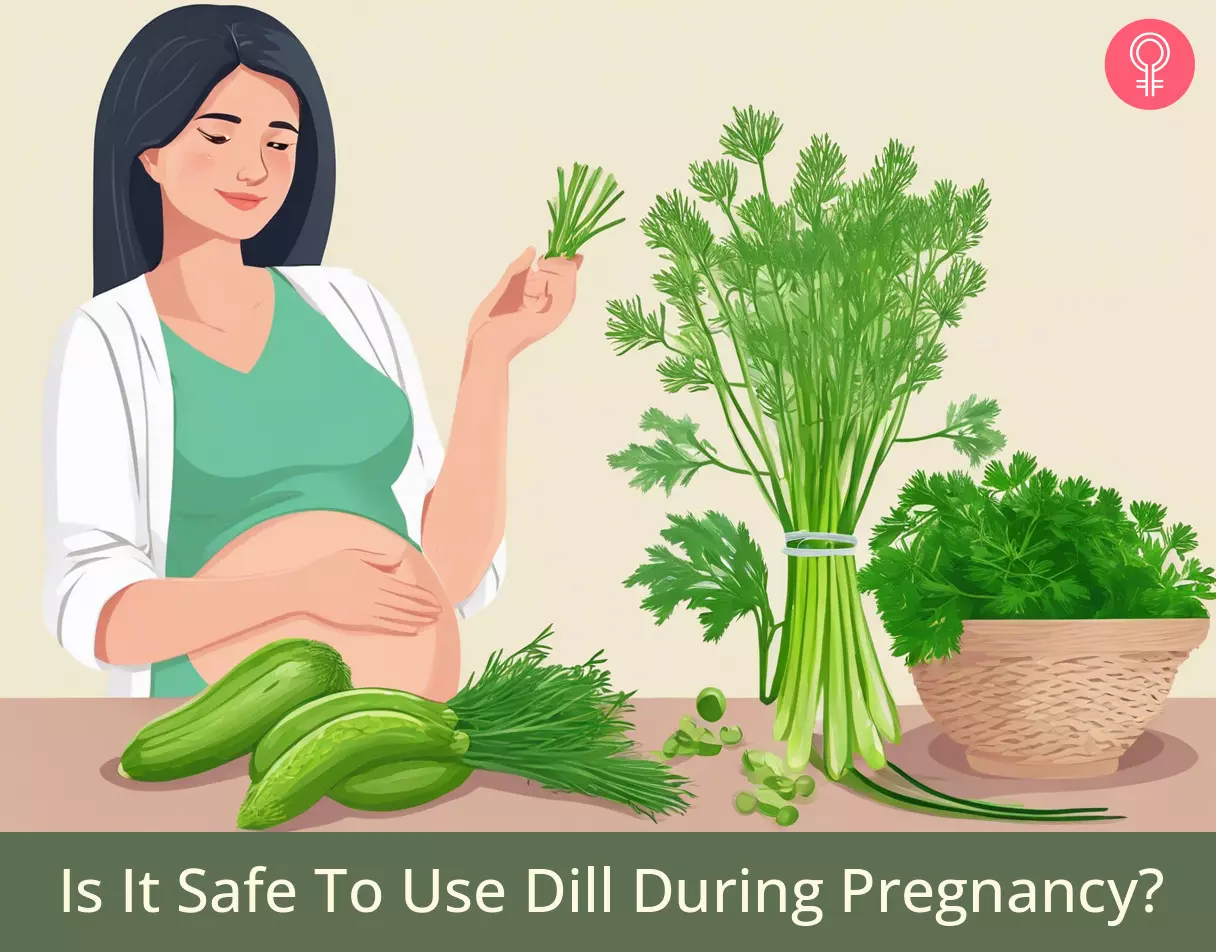
Image: Stable Diffusion/MomJunction Design Team
References
- S. Jana and G. S. Shekhawat; (2010); Anethum graveolens: An Indian traditional medicinal herb and spice.
https://www.ncbi.nlm.nih.gov/pmc/articles/PMC3249919/ - Monsefi Malihezaman et al. (2012); Anti-Fertility Effects of Different Fractions of Anethum Graveolens L. Extracts on Female Rats.
https://www.ncbi.nlm.nih.gov/pmc/articles/PMC3746659/ - Why Pregnancy Can Make You Have Weird Cravings.
https://intermountainhealthcare.org/blogs/why-pregnancy-can-make-you-have-weird-cravings - Hekmatzadeh, Seyedeh-Fatemeh et al.; (2019); Effects of Boiled Dill Seed on Anxiety During Labor: A Randomized Clinical Trial.
https://pubmed.ncbi.nlm.nih.gov/31705450/
Community Experiences
Join the conversation and become a part of our nurturing community! Share your stories, experiences, and insights to connect with fellow parents.
Read full bio of Jyoti Benjamin
Read full bio of Ria Saha
Read full bio of Swati Patwal
Read full bio of Lorraine Teron










